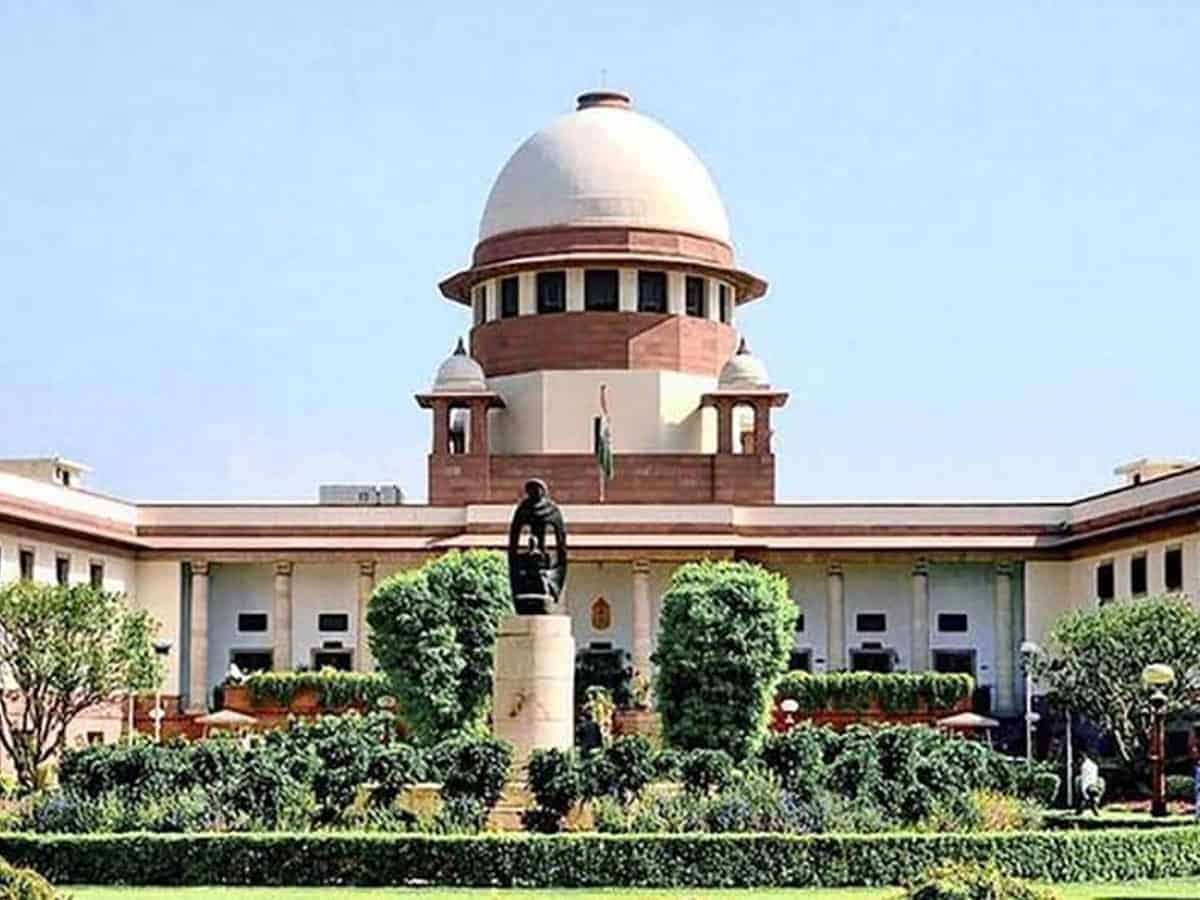
New Delhi: The Supreme Court on Wednesday asked the Centre what the reasons were for the denial of security clearance to the Malayalam news channel ‘MediaOne’ and why those reasons cannot be disclosed to them.
The top court said the essence of court proceedings was that anything relied upon by one party should be disclosed to the opposite party.
A bench of justices DY Chandrachud and Hima Kohli told Additional Solicitor General K M Nataraj, appearing for the Centre, that even in cases of detention under the National Security Act, the authority has to give grounds for detention but in this case, it was only said that the Ministry of Home Affairs has denied security clearance.
“The authority granting the broadcast licence is different from the authority revoking the licence on the ground of security. It is a third party. Then what is the remedy for the citizen, who is denied the permission…you are not saying they are the offenders but are revoking their licence”, the bench said.
The top court was hearing the plea of the news channel against the Kerala High Court’s order which had upheld the Centre’s decision to ban its telecast on security grounds.
The bench added that in a criminal case, a charge sheet is filed against the accused, and no matter how sensitive the charges are, they are disclosed to the accused, and in the present case, it is not even at that threshold.
“We understand there are sources which cannot be disclosed but then you can provide a redacted copy of the materials. You can’t straight away deny the other party information on which you are arriving at a conclusion,” the bench said.
It added that guidelines say national security and public order will be grounds for denial of permission to renew a broadcast licence but the other party needs to know what their breach was.
“Renewal of licence is important for a media house because there is an investment involved, market reputation at risk, people have been employed. In this case, they have been running for the past 10 years, so goodwill in the market is also there,” the bench said.
In a nearly four-hour hearing, the bench asked Nataraj to seek instructions on these queries and come prepared on Thursday.
At the outset, senior advocate Dushyant Dave, appearing for the channel, claimed that it has never violated the programme code but the only crime is that the channel is owned by people of a minority community.
He said the lack of security clearance by the Ministry of Home Affairs cannot be grounds to not renew the licence if the channel is fulfilling the conditions under the Cable Television Networks (Regulation) Act, 1995.
“The fundamental right to freedom of speech and expression, which includes the press freedom, can be restricted only on the grounds enumerated under Article 19 (2),” he said.
Senior advocate Huzefa Ahmadi, appearing for the chief editor of the channel, said the government has said before the high court that the channel is a threat to national security and public order.
“When you (Centre) pass the final order you don’t tell me that I have violated national security or public order. You merely say that I have violated security clearance,” he said.
The bench said if there is revoking of clearance on national security and public order, there should be tangible material to show that channel is impinging upon national security.
Ahmadi said, “If they are saying something sensitive then they may redact that part, but at least, they can provide me a gist of how the channel has breached the conditions.”
On Tuesday, the top court was told by the news channel that security clearance from the Centre was not needed for renewal of the broadcast licence and the government does not have omnibus discretion to impose any new condition.
The top court had on March 15 in an interim order stayed until further directions the January 31 directive of the Centre revoking the licence of the news channel and banning its telecast on security grounds.
It had said the news and current affairs channel would continue its operations as it was operating prior to the ban of the telecast.
The top court had passed the order after perusing the files filed by the Centre on the basis of which security clearance was revoked and the Kerala High Court had passed the order upholding the ban on the telecast.
It had left the question open of whether the content of files on the basis of which the ban order was passed be given to the channel to enable it to defend itself.
The Kerala High Court had upheld the Centre’s decision to bar the telecast of the Malayalam news channel and dismissed the plea of Madhyamam Broadcasting Ltd — which operates MediaOne — challenging the central government’s January 31 decision.
The high court had said that the decision of the Ministry of Home Affairs (MHA) to deny security clearance was based on intelligence inputs received from various agencies.
The channel had contended that MHA clearance was only required at the time of fresh permission/licence and not at the time of renewal.
It had also contended that according to the uplinking and downlinking guidelines, security clearance was only required at the time of application for fresh permission and not at the time of renewal of licence.
